Today's Top Picks
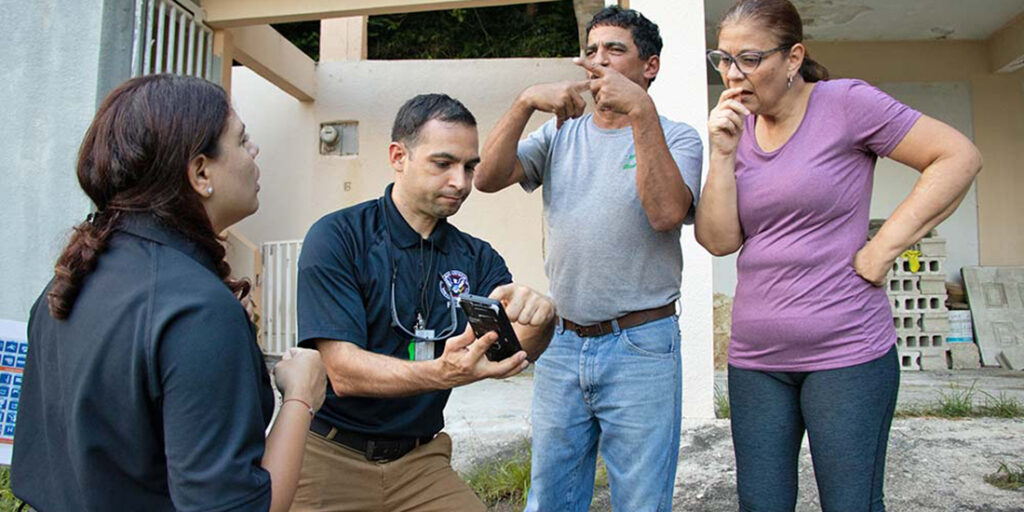
Not Lost in Translation: A Multilingual Corps Approach
Disaster survivors and responders often face psychological hazards like acute stress disorder, depression, and post-traumatic stress. These issues are worsened in multilingual communities, where language barriers hinder communication and delay aid. Effectively addressing these challenges goes beyond basic translation or ad hoc interpreting to address the whole community.

Disaster Stress Management in an Emergency Operations Center
Disasters affect responders and community members, but they also bring trauma to those working inside emergency operations centers. Distance from the scene does not create a shield from stress. Secondary traumatic stress can impair leadership, so managing this stress is vital for effective emergency response.

A Holistic Strategy for Responders’ Well-Being
First responders and emergency managers face constant, high-pressure stress from trauma, long hours, and critical decisions. This often leads to chronic stress, increasing risks of heart disease, mental health issues, and substance abuse. Their ability to help others depends on prioritizing their own well-being through proactive self-care.
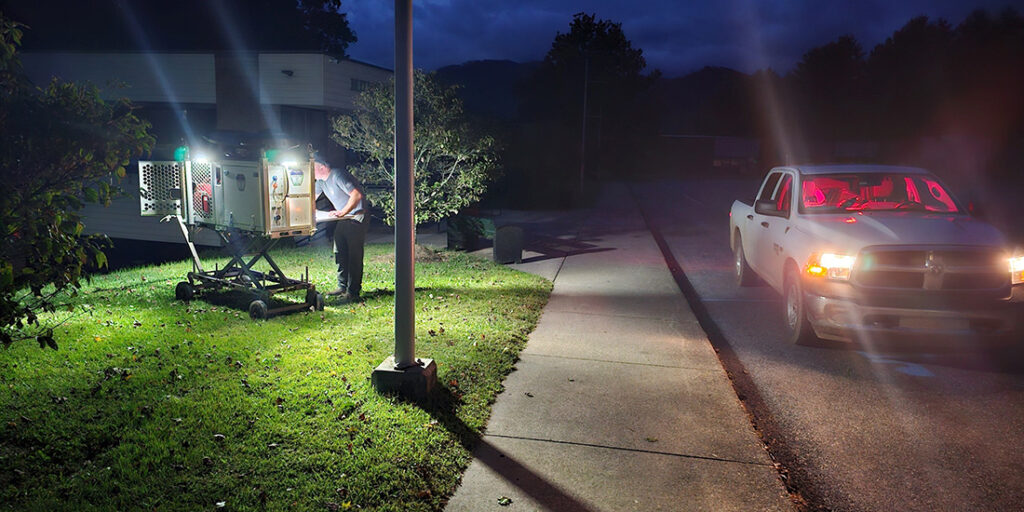
Bridging Communication Gaps: Lessons from Hurricane Helene
Hurricanes in 2024 caused widespread damage to infrastructure, leading to a critical but often overlooked issue: isolation. Physical and technological disruptions left public safety personnel and government officials unable to perform essential tasks. While physical destruction was visible, the invisible breakdown of communication systems intensified the sense of isolation and fear among officials and the public.

Connectivity: The Foundation of Disaster Response and Preparedness
In an era of increasingly frequent and severe weather events, the demands on first responders have never been greater. To navigate high-stakes, rapidly evolving situations, reliable connectivity and cutting-edge technology are essential. A fast, secure, and resilient communications network is the backbone of any effective disaster response.
Trending
 Bridging Communication Gaps: Lessons from Hurricane Helene by Greg Hauser Hurricanes in 2024 caused widespread damage to infrastructure, leading to a critical but often overlooked issue: isolation. Physical and technological…
Bridging Communication Gaps: Lessons from Hurricane Helene by Greg Hauser Hurricanes in 2024 caused widespread damage to infrastructure, leading to a critical but often overlooked issue: isolation. Physical and technological… A Systems Thinking Approach to Improving Emergency… by William Chapman “PACE” planning helps organizations fail gracefully, but systems thinking reduces the likelihood of failure altogether. Combining both approaches helps organizations…
A Systems Thinking Approach to Improving Emergency… by William Chapman “PACE” planning helps organizations fail gracefully, but systems thinking reduces the likelihood of failure altogether. Combining both approaches helps organizations… Disaster Stress Management in an Emergency Operations Center by Mary Schoenfeldt Disasters affect responders and community members, but they also bring trauma to those working inside emergency operations centers. Distance from…
Disaster Stress Management in an Emergency Operations Center by Mary Schoenfeldt Disasters affect responders and community members, but they also bring trauma to those working inside emergency operations centers. Distance from… Why Emergency Management Is a Good Career for… by Mathew Perrill For many service members, the transition from the military to a civilian workforce can be challenging. They have been trained…
Why Emergency Management Is a Good Career for… by Mathew Perrill For many service members, the transition from the military to a civilian workforce can be challenging. They have been trained…Trending
 Disaster Stress Management in an Emergency Operations Center by Mary Schoenfeldt Disasters affect responders and community members, but they also bring trauma to those working inside emergency operations centers. Distance from…
Disaster Stress Management in an Emergency Operations Center by Mary Schoenfeldt Disasters affect responders and community members, but they also bring trauma to those working inside emergency operations centers. Distance from… Why Emergency Management Is a Good Career for… by Mathew Perrill For many service members, the transition from the military to a civilian workforce can be challenging. They have been trained…
Why Emergency Management Is a Good Career for… by Mathew Perrill For many service members, the transition from the military to a civilian workforce can be challenging. They have been trained… Bridging Communication Gaps: Lessons from Hurricane Helene by Greg Hauser Hurricanes in 2024 caused widespread damage to infrastructure, leading to a critical but often overlooked issue: isolation. Physical and technological…
Bridging Communication Gaps: Lessons from Hurricane Helene by Greg Hauser Hurricanes in 2024 caused widespread damage to infrastructure, leading to a critical but often overlooked issue: isolation. Physical and technological… A Systems Thinking Approach to Improving Emergency… by William Chapman “PACE” planning helps organizations fail gracefully, but systems thinking reduces the likelihood of failure altogether. Combining both approaches helps organizations…
A Systems Thinking Approach to Improving Emergency… by William Chapman “PACE” planning helps organizations fail gracefully, but systems thinking reduces the likelihood of failure altogether. Combining both approaches helps organizations…Trending
Bridging Communication Gaps: Lessons from Hurricane Helene by Greg Hauser Hurricanes in 2024 caused widespread damage to infrastructure, leading to a critical but often overlooked issue: isolation. Physical and technological…
A Systems Thinking Approach to Improving Emergency… by William Chapman “PACE” planning helps organizations fail gracefully, but systems thinking reduces the likelihood of failure altogether. Combining both approaches helps organizations…
Disaster Stress Management in an Emergency Operations Center by Mary Schoenfeldt Disasters affect responders and community members, but they also bring trauma to those working inside emergency operations centers. Distance from…
Why Emergency Management Is a Good Career for… by Mathew Perrill For many service members, the transition from the military to a civilian workforce can be challenging. They have been trained…
Domestic Preparedness Journal
Featured in this issue
- Special Units and Underutilized Resources
- Law Enforcement and Multidisciplinary Teams
- Public Order Policing Units in Disasters
- State Defense Forces in Emergency Response
- Emergency Carcass Operations
- Wildfire PREsponse: Closing the Gap With Mitigation
- Scouts and the Value of Prepared Youth
- Service Dogs: What First Responders Need to Know
- Emergency Management for Transitioning Veterans
- Podcast – Reframing Hurricane Response: Craig Fugate on Survivors as a First Line of Defense
- Podcast – Built to Serve: Chief Jeffrey J. Wittig on TIFMAS, Teamwork, and Emergency Response
Articles Out Loud

Article Out Loud – Law Enforcement Collaboration Within Multidisciplinary Teams
June 25, 2025
This is an article by Richard Schoeberl and Anthony (Tony) Mottola, an Article Out Loud from Domestic Preparedness, June 25,

Article Out Loud – State Defense Forces: The Untapped Backbone of Emergency Response
June 25, 2025
This is an article by Robert Hastings, an Article Out Loud from Domestic Preparedness, June 25, 2025. As disasters become


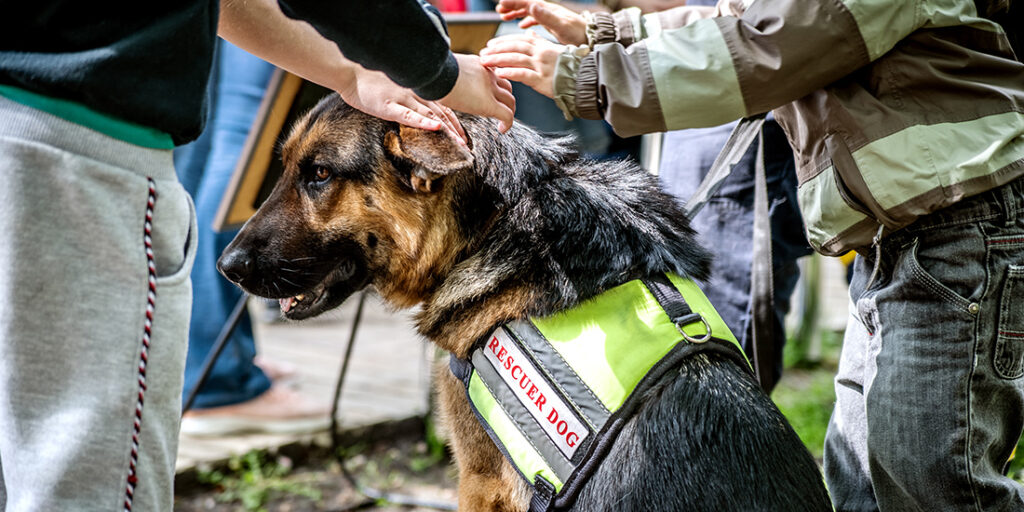
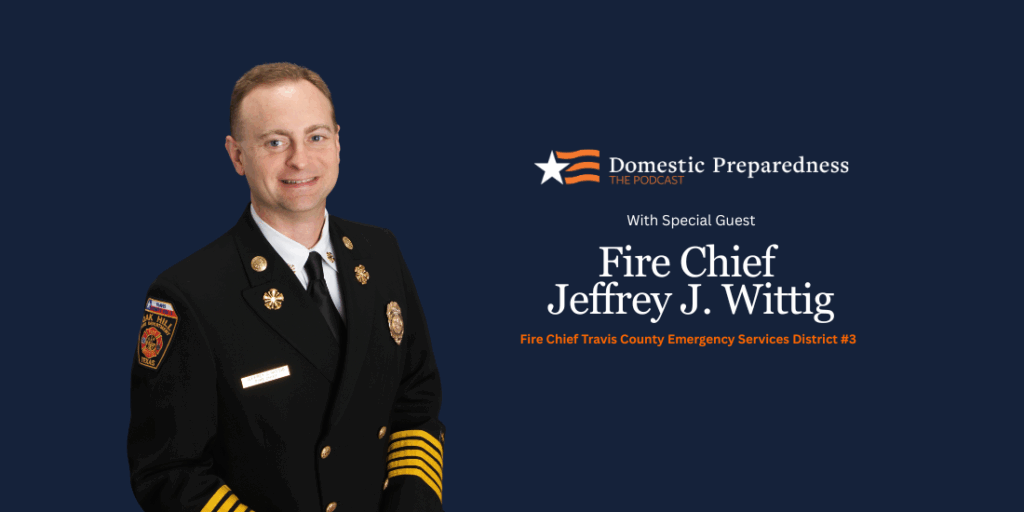
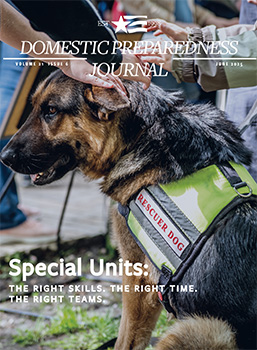

Editor’s Note – Emergency Communications: Tough Lessons From the Maui Wildfires